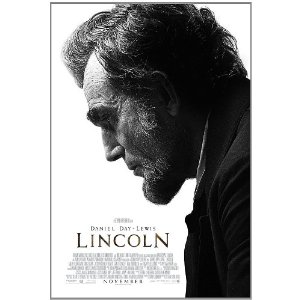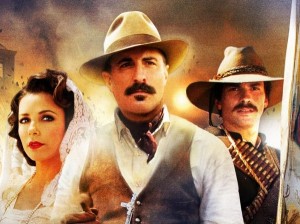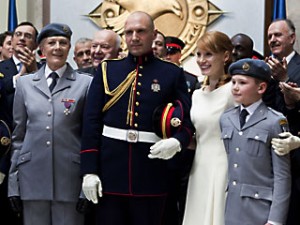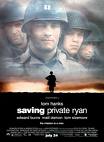 The first question about big, prestige films like “Lincoln” is always where it falls on what I call the spinach scale. Will I tell people to see it because it is entertaining or because it is good for them. For all its meticulous attention to historical verisimilitude and its extended depiction of people in rooms talking about a Constitutional amendment, “Lincoln” is not an eat-your-spinach-because-it’s-good-for-you movie. It is a robust, engrossing story that illuminates our own time as well as the era of the 16th and arguably greatest President.
The first question about big, prestige films like “Lincoln” is always where it falls on what I call the spinach scale. Will I tell people to see it because it is entertaining or because it is good for them. For all its meticulous attention to historical verisimilitude and its extended depiction of people in rooms talking about a Constitutional amendment, “Lincoln” is not an eat-your-spinach-because-it’s-good-for-you movie. It is a robust, engrossing story that illuminates our own time as well as the era of the 16th and arguably greatest President.
Task number one for director Steven Spielberg, screenwriter Tony Kushner (Angels in America ), and star Daniel Day-Lewis is to make the icon into a human being, to show us his greatness but also his humanity. In our hearts, this almost-literally larger than life man sounds like James Earl Jones — we can almost hear that deep voice reciting the Gettysburg address. But those who actually heard Lincoln speak described his voice as high, thin, and reedy-sounding. It may be jarring at first, but in an exceptionally well-designed introductory scene Day-Lewis deploys that timbre with such gentleness and modesty that it quickly becomes an asset not just to his performance but to our understanding of this man.
), and star Daniel Day-Lewis is to make the icon into a human being, to show us his greatness but also his humanity. In our hearts, this almost-literally larger than life man sounds like James Earl Jones — we can almost hear that deep voice reciting the Gettysburg address. But those who actually heard Lincoln speak described his voice as high, thin, and reedy-sounding. It may be jarring at first, but in an exceptionally well-designed introductory scene Day-Lewis deploys that timbre with such gentleness and modesty that it quickly becomes an asset not just to his performance but to our understanding of this man.
Lincoln is sitting quietly, talking to a small group of Union soldiers, two black and two white. We see immediately that the soldiers respect him greatly — they can recite the Gettysburg address from memory — but that they feel completely comfortable being honest with him about their experiences and their recommendations. What we feel immediately is that he is both respected and trusted, and that he has a rare ability to listen. He may not be a modest man — at one point he thunders, “I am the President of the United States and clothed in immense power!” But he is a humble man, who understands that he can best lead by allowing others to move forward with him. He loves to share stories, more than others love to hear them. But like a great preacher, he knows that it is the stories that persuade people. Everyone softens a little for a story, especially one with a punchline. And a story helps the listener toward the conclusion without feeling pushed.
A century and a half later, audiences may be surprised to see how little has changed. Indeed, even the vilest insults of the Twitterverse and the shrillest complaints of Super-PAC ads do not touch the comments made by Members of Congress, who do not hesitate to question each other’s integrity or sanity. “Fatuous nincompoop,” for example.
Audiences may be more surprised to find that “Democrat” and “Republican” seem to have switched places. What has not changed is the way that politics attracts people of great cowardice and even greater courage, of people who hold on and people who reach forward, of people who want to help themselves and people who want to help others at great cost to themselves, including those who can never thank them.
When Lincoln decides that his most important priority is eradicating slavery through approval of the 13th Amendment to the Constitution, his team brings in a trio of lobbyists (John Hawkes, Tim Blake Nelson, and a wonderfully puckish James Spader) who are as cheerfully cynical as anyone on K Street today. Through a combination of bribes and threats, they work to get the votes they need. It is clear the Civil War is about to end, and if the South is readmitted to the Union, it will never pass. Lincoln understood that the only way to keep the country together was to take its most divisive issue off the table. He also understood that doing so would have its own terrible costs. Even those who supported the Amendment had to make compromises, including its most ardent defender (a scene-stealing performance by Tommy Lee Jones as Pennsylvania’s Thaddeus Stevens).
Kushner and Spielberg, like their main character, recognize the power of story-telling, and this illuminating tale would make its subject proud and perhaps to inspire all of us to aspire to that as well.
Parents should know that this film has some battle scenes, graphic images in hospital including amputated limbs, some strong language including one f-word, sad losses, drinking, and smoking.
Family discussion: There are a lot of compromises in this movie and a lot of shading of the truth – which were the most difficult? Why was the passage of the 13th amendment so important? What moments in the film reminded you of today’s political debates and strategies?
If you like this, try: some of the other portrayals of Lincoln on film, including “Young Mr. Lincoln” and “Abe Lincoln of Illinois” and the musical about the Declaration of Independence, “1776”
One of the finest young actors working today, Ben Foster, stars with Woody Harrelson and Samantha Morton in this powerful story of an injured soldier assigned to visit the families of soldiers to deliver the news that they have been killed.
The detail assigned to Arlington Cemetery is responsible for honoring the war dead. James Caan, James Earl Jones, and D.B. Sweeney star in this moving tribute to the soldiers who pay tribute.
Kevin Bacon stars in this fact-based story of Lt. Col. Michael Strobl who volunteered to escort a fallen soldier’s remains when he found out they shared the same home town. It is a quietly touching drama about how the journey affected Strobl and the people along the way.




